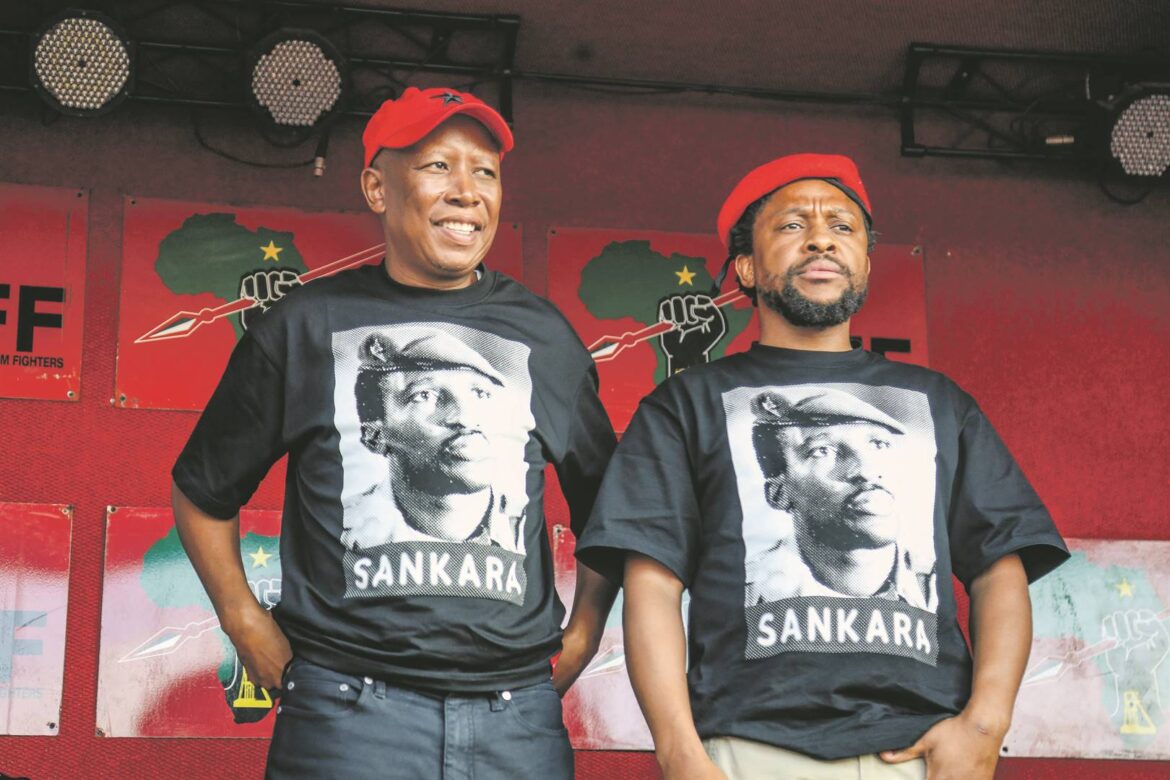Dr. Mbuyiseni Ndlozi, a senior member of the Economic Freedom Fighters (EFF), has found himself at the center of a storm following his absence from the party’s much-anticipated National People’s Assembly (NPA) held at the Nasrec Expo Centre. The event saw the emergence of a new leadership, including the members of the Central Command Team (CCT), which consists of 66 members, including the top six. Ndlozi’s absence has sparked significant controversy, especially in light of comments made by EFF leader Julius Malema, who emphasized that only those elected at the conference should be regarded as legitimate leaders of the party.
Malema’s remarks were pointed and unambiguous, leaving little room for doubt about the party’s stance on leadership credentials. “Anyone who is not elected by the province or by this conference is not a leader of the EFF,” he declared firmly. His statement seemed to be directed not just at Ndlozi, but also at any member who might seek to undermine the party’s democratic processes by claiming leadership roles without the endorsement of the NPA. Malema’s words underscored the importance of unity and legitimacy within the party, setting a clear boundary between those who had earned their positions through election and those who were excluded.
The controversy surrounding Ndlozi’s absence was further compounded by reports of his strained relationship with the EFF leadership. Sources suggest that Ndlozi’s exclusion from the conference was not just a logistical issue but was tied to deeper internal conflicts. Malema himself was outspoken about Ndlozi’s “ego” and what he referred to as the “betrayal” of the movement. These remarks likely stem from an incident earlier in the year when Ndlozi was allegedly aware of former deputy president Floyd Shivambu’s decision to leave the EFF and join the uMkhonto weSizwe (MK) Party—an affair that Malema was unaware of until Shivambu’s resignation in August.
Malema’s trust in Ndlozi, once one of the most prominent faces of the EFF, has clearly been shaken by this revelation. The EFF leader’s public disappointment with Ndlozi’s failure to share critical information reflects broader concerns about loyalty and transparency within the party. Malema’s decision to bar Ndlozi from attending the NPA signals a deepening rift, as trust and solidarity are pillars of the EFF’s organizational structure. In the political realm, such breaches of trust can have far-reaching consequences, especially when they involve figures of such prominence within the party.
As the EFF moves forward with its new leadership structure, Ndlozi’s status within the party has been thrown into question. Once seen as a dynamic spokesperson and a key figure in the party’s rise, his absence from the NPA and the backlash from party leadership cast doubt on his future role. The EFF’s leadership transition, marked by the election of a new CCT, appears to be a watershed moment, one that could redefine internal party dynamics and determine who holds real influence moving forward. For now, Ndlozi’s political future seems uncertain, as the EFF leadership signals that only those chosen by the party’s democratic processes will be recognized as legitimate leaders.
Malema’s sharp comments reflect his commitment to preserving the unity and discipline within the EFF, a party that has prided itself on its revolutionary ideals and uncompromising stance on issues of economic freedom and social justice. The exclusion of figures like Ndlozi may be seen as a necessary step in reinforcing the party’s cohesion and ensuring that personal egos do not undermine its collective mission. As the EFF navigates these internal challenges, the resolution of these leadership disputes will be critical to its continued success and its ability to maintain a united front in the face of South Africa’s political landscape.
For now, the question remains: will Ndlozi manage to rebuild his relationship with the party and find a place in its future, or is this the beginning of the end of his leadership role within the EFF? Only time will tell, but one thing is clear: the power dynamics within the party are shifting, and those who wish to remain in the fold must toe the line.
